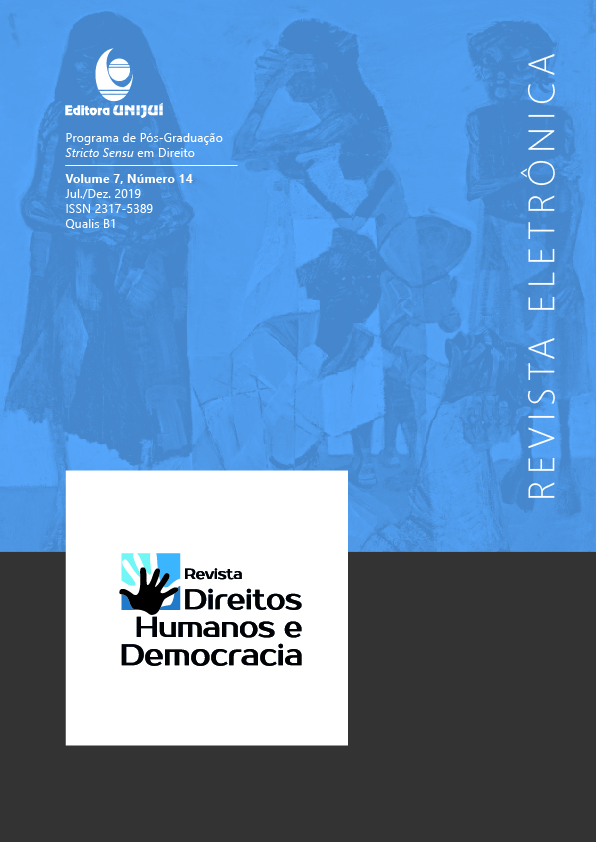OS IMPACTOS DA DECLARAÇÃO UNIVERSAL DOS DIREITOS HUMANOS SOBRE O DESENVOLVIMENTO DO NOVO DIREITO INTERNACIONAL
DOI:
https://doi.org/10.21527/2317-5389.2019.14.50-72Keywords:
Novo direito internacional – Declaração Universal dos Direitos Humanos – Valores universais da humanidade – Direito internacional humanitário – Direito internacional dos direitos humanos.Abstract
Ainda que o direito internacional tenha origens que remontem ao antigo direito das gentes, pode-se dizer que sua faceta moderna, que coloca o indivíduo no centro do seu espectro de proteção, nasce em período posterior. Se as primeiras raízes do novo direito internacional começam nascer no fim do Século XIX, com o surgimento do direito internacional humanitário, pode-se afirmar, de outro lado, que o segundo pós-guerra se constitui em um marco para novos paradigmas do direito internacional. Esse é o momento histórico em que se inaugura o sistema de proteção das Nações Unidas e toda uma construção normativa iniciada com a Declaração Universal dos Direitos Humanos, do qual emerge toda uma construção jurisprudencial oriunda das Cortes Internacionais e Regionais. Diante de todo esse contexto, o presente trabalho tem por objetivo analisar os impactos trazidos pela Declaração Universal dos Direitos Humanos na construção do direito internacional moderno, cotejando-a com o desenvolvimento do direito internacional dos direitos humanos, do qual pode-se extrair quais os valores mais caros pertencentes à comunidade humana em seu conjunto. Para atingir o objetivo proposto, serão utilizados o método histórico de procedimento, por meio de uma análise evolutiva dessas construções. Será utilizado igualmente o método hipotético-dedutivo de abordagem, o qual da parte hipótese de que a humanidade possui valores absolutos e universais a ser protegidos por esse sistema.
Downloads
Published
How to Cite
Issue
Section
License
By publishing in the Revista Direitos Humanos e Democracia, authors agree to the following terms:
Articles are licensed under the Creative Commons Atribuição 4.0 Internacional (CC BY 4.0), which allows:
Share — copy and redistribute the material in any medium or format;
Adapt — remix, transform, and build upon the material for any purpose, including commercial use.
These permissions are irrevocable, provided the following terms are respected:
Attribution — authors must be properly credited, with a link to the license and indication of any modifications made;
No additional restrictions — no legal or technological measures may be applied that restrict the use permitted by the license.
Notices:
The license does not apply to elements in the public domain or covered by legal exceptions.
The license does not grant all rights required for specific uses (e.g., image rights, privacy, or moral rights).
The journal is not responsible for opinions expressed in the articles, which remain the sole responsibility of the authors. The Editor, with the support of the Editorial Committee, reserves the right to suggest or request modifications when necessary.
Only original scientific articles presenting research results of interest, not previously published or simultaneously submitted to another journal with the same purpose, will be accepted.
References to trademarks or specific products are intended solely for identification purposes and do not imply any promotional endorsement by the authors or the journal.
License Agreement: Authors retain copyright over their articles and grant the Revista Direitos Humanos e Democracia the right of first publication.













